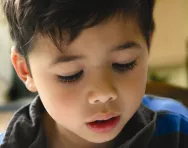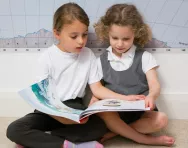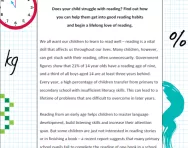Important update from TheSchoolRun
For the past 13 years, TheSchoolRun has been run by a small team of mums working from home, dedicated to providing quality educational resources to primary school parents. Unfortunately, rising supplier costs and falling revenue have made it impossible for us to continue operating, and we’ve had to make the difficult decision to close. The good news: We’ve arranged for another educational provider to take over many of our resources. These will be hosted on a new portal, where the content will be updated and expanded to support your child’s learning.
What this means for subscribers:
- Your subscription is still active, and for now, you can keep using the website as normal — just log in with your usual details to access all our articles and resources*.
- In a few months, all resources will move to the new portal. You’ll continue to have access there until your subscription ends. We’ll send you full details nearer the time.
- As a thank you for your support, we’ll also be sending you 16 primary school eBooks (worth £108.84) to download and keep.
A few changes to be aware of:
- The Learning Journey weekly email has ended, but your child’s plan will still be updated on your dashboard each Monday. Just log in to see the recommended worksheets.
- The 11+ weekly emails have now ended. We sent you all the remaining emails in the series at the end of March — please check your inbox (and spam folder) if you haven’t seen them. You can also follow the full programme here: 11+ Learning Journey.
If you have any questions, please contact us at [email protected]. Thank you for being part of our journey it’s been a privilege to support your family’s learning.
*If you need to reset your password, it will still work as usual. Please check your spam folder if the reset email doesn’t appear in your inbox.
How to improve your child’s reading skills in KS1

In Key Stage 1, most children’s reading abilities fall within (what were previously known as) National Curriculum Levels 1, 2 or 3. National curriculum levels have now been replaced by a primary-school grading system, but children's expected progress in reading is broadly the same as if was under the levels system.
By the time they take their KS1 SATs in May of Year 2, children are expected to achieve "Level 2" as outlined below; Level 1 is therefore below average, and Level 3 is above.
Understanding what progress your child should be able to make will help you target the areas in which they’re having trouble. Here is a brief outline of what readers should be able to demonstrate as they learn:
"Level 1" readers…
• Can recognise familiar words in simple texts
• Use their knowledge of letters and phonics in order to read words and to establish meaning when reading aloud
• May sometimes require reading support
• Express their response to poems, stories and non-fiction by identifying aspects they like
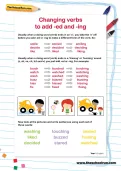
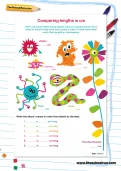
Start the Year 1 Learning Programme today!
- Weekly maths & English worksheets direct to your inbox
- Follows the National Curriculum
- Keeps your child's learning on track
"Level 2" readers…
• Can read simple texts, show understanding and are generally accurate
• Can express opinions, likes/dislikes about major events or ideas in stories, poems and non-fiction books
• Are able to use more than one strategy, such as phonic, graphic, syntactic and contextual, in reading unfamiliar words and establishing meaning
Children at this stage in their reading learning journey will be reading books from school reading schemes, texts designed to help children when they're learning to read.
Level 3 readers…
• Can read a range of wide texts fluently and accurately
• Can read independently, competently using strategies to establish meanings of unfamiliar words and phrases
• In responding to fiction and non-fiction in a range of modes, they show understanding of the main points and express preferences
• Can use their knowledge of the alphabet and of search techniques (in contents, index pages, etc.) to locate sources and find information
Most children at this stage will be "free readers".
How to help a "Level 1" reader …
• Help them work on their letter and sound recognition. This is best done either in everyday life or when reading together. For instance, over breakfast you can casually look at packaging together, and ask if they can spot certain sounds on the cereal box.
• If they are struggling with an unfamiliar word while reading, encourage them to learn how to use clues to figure out what the word is. Clues can be gained from the pictures or from the whole sentence – get them to work out what would fit. Never criticise a good guess – praise it!
• Keep reading to them. Don’t let their school reading take the place of you reading stories to them. Unless they get their regular dose of bookish pleasure it’s going to be a struggle to get the motivation up for them to work hard on their reading.
How to help a "Level 2" reader …
• This one can be tricky as we’re all so busy, but try not to rush them when they read to you. At school they’ll be learning lots of different phonemes – probably 1-3 a week. When they are reading words they’re finding difficult, try not to say the word for them; give them plenty of time to process what it might be using their phonic knowledge. If they’re still stuck after 20-30 seconds, then it’s time to help them out.
• Allow at least five minutes after each reading session to discuss likes and dislikes, character, plot and any interesting words the author has used.
• Remember the reading books they bring home from school are really important, but don’t forget to use the books you have at home for them to read from too as this will give them a great variety. To find out if a book is too tricky for them, let them read the first page – if they get stuck on more than five words, choose another book to try.
"How to help a Level 3" reader…
• As they grow in confidence, don’t forget they still should experience reading on most days; it’s a skill that needs continual practice to improve upon. In time, reading sessions may become less one to one, and they may start to read to younger siblings or alone.
• Now’s the time to get them enjoying some fabulous literature that will really encourage them to be passionate about the written word. Start reading books to them that need to be serialised. Anything by Roald Dahl is an obvious but fabulous choice here, and The Twits or George’s Marvellous Medicine are great first mini-novels. Reading these books will lead to lots of conversation about language, plot and character, and this will help them greatly as they move into key stage 2. If they don't show much interest in books, why not try comics or magazines?
Struggling to get your child interested in books? Read our top tips on turning your child from book-bored to bookworm, or find out more about school reading book schemes, reading comprehension and how to get the most out of reading with your children.
